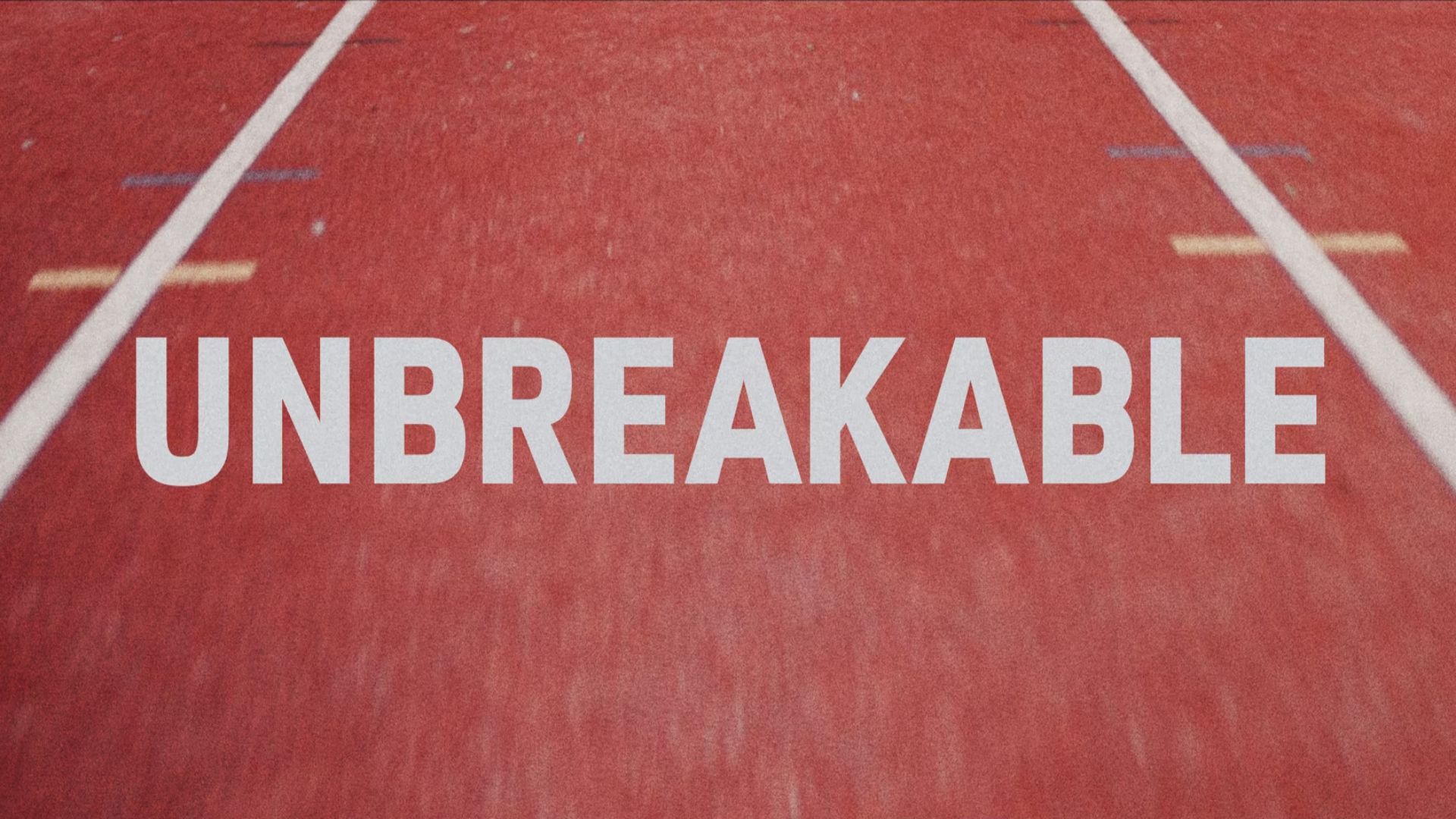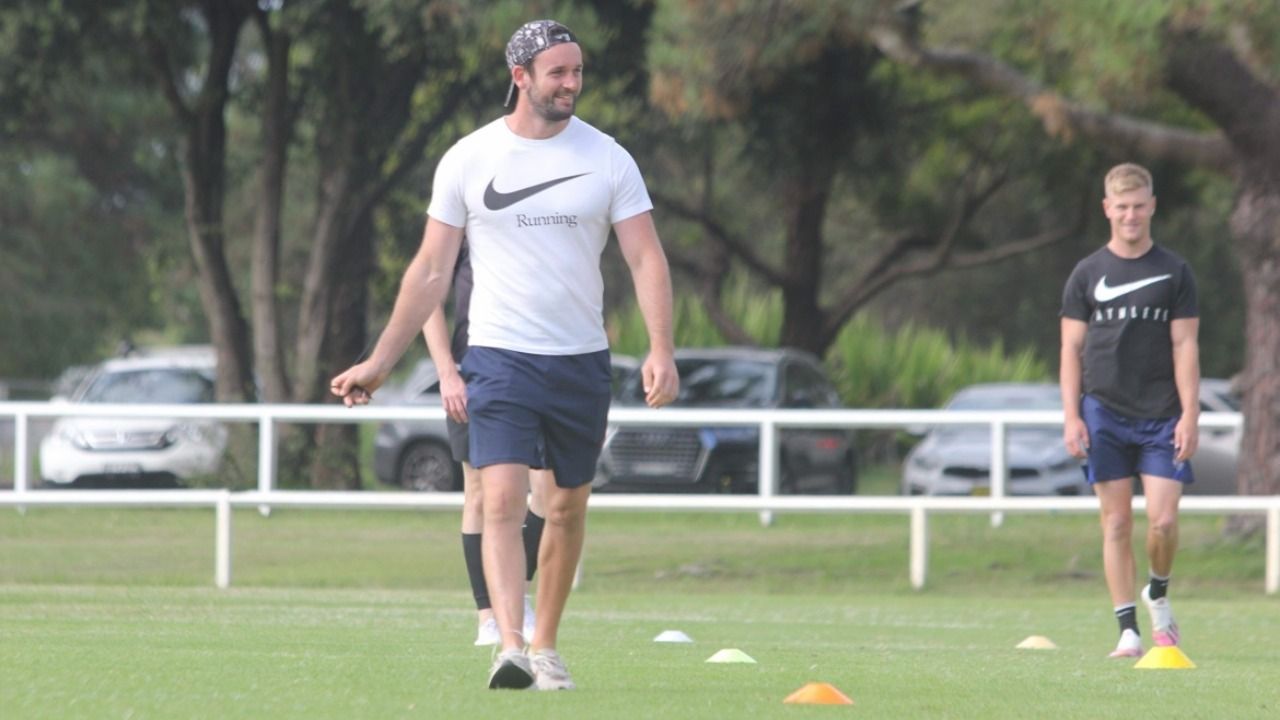



Jack's Story: Unbreakable
To get to the top, there are always going to be setbacks. We caught up with Jack D’Arcy, an emerging sprinter who went through challenging times both mentally and physically, when he was hospitalized after a horrific motorbike accident in 2016. This story reflects on his experience, determination, and unbreakable spirit to run again.
Jack, did you know growing up that you always wanted to be an athlete? How did you fall in love with running?
I always wanted to be an athlete, I played all different types of sports growing up, but what I loved most, whether it was rugby league, basketball, or soccer, was using my speed in the game. Every summer I did Little Athletics to keep getting faster and jumping further. In 2008 when Usain Bolt won the 100m Olympic Final by a massive amount, it cemented for me that this was what I wanted to do.
Can you tell us about your accident? Where was your sporting career beforehand, and how has the experience impacted your mental health?
In December 2016, I was riding my motorbike to work, in a bad headspace after having a horrible shift at work the night before. I was riding around an 80km/h corner when a ute coming the other way, steered closed to the centre line. To avoid getting too close to the ute, I went to change my riding line but as I did the foot peg scraped the ground.
I jerked and the bike slipped out from underneath me. I slid at 80km/h into the ute breaking my right hip, both femurs (thigh bones), right tibia, right fibula, left ankle and multiple ligament and tendon injuries.
Prior to the accident I had deferred university study and only worked part time to solely focus on my sprinting career. My plan was to win or make the final at the Stawell Gift in 2017, then make a push for the 2018 Commonwealth Games.
The accident turned my life upside down, from sprinting at top speed one day to the very next not being able to move my toes. It was very confronting but all I cared about was how soon it was until I could start my rehab.
It wasn’t until the doctors wrote on my discharge report saying, return to competitive sprinting is highly unlikely.” that I really struggled and broke down for the first time.
The accident would have been a traumatic experience both physically and mentally. What tactics and strategies did/do you use to help your overall wellbeing?
Physical activity was a key strategy in helping not only my physical wellbeing, but my mental wellbeing. Even though I was walking on crutches and could barely use my legs, I adopted the mindset of an athlete to improve and beat my PB’s as much as I could. Instead of trying to sprint faster or squat 10 extra kilos my challenges and PB’s were trying to walk up one extra stair or walk to the end of the driveway.
While not being able to compete in the sport I became a coach, as this was the closest thing I could get to competing without being able to do it myself. Coaching in the sport kept me in the athletics sporting community, and socialising with friends and athletes helped my mental health massively.
How do you prepare yourself mentally for competitions?
Visualisation and routines are incredibly important leading up to competitions. When winning can be the difference of hundredths of a second, preparation needs to be as perfect as it can be.
In the week leading up to a competition, I start to visualise every single part of the day. This helps take irrelevant thoughts out of my mind on race day and allows me to focus on my preparation and sprint as fast as possible.
Having a tested and set routine is also crucial to keeping a clear and stable mind. I recommend testing these routines before training to see if they have a positive impact on performance, such as knowing optimal caffeine intake, where/when to get physiotherapy treatment and so on. Having routines that you know work for you, helps maximise your performance and enhance your mental confidence going into competitions.
How do you cope or react to results from your own experience and as a coach?
Coping with good results is easy! Take a moment to celebrate and smell the roses, then get back to training towards your goals.
Regarding the other end of the spectrum, I believe language is a powerful tool and we need to be incredibly careful in how we use it. The word ‘bad’ has a negative connotation attached to it, so the first step is to try and not use negative words around things that you enjoy.
Of course, there are times you might have to, but in general, using words that draw positives from poor or less-than-idea ideal results make it much easier to cope.
“If you didn’t run well, then did you learn a lesson or take something away to apply in future races?”
This is an example of something I ask myself and my athletes after races. It helps you to acknowledge what happened but stops you from dwelling on that one performance and focus on your future ambitions.
Why do you believe mental health is so important? And how do you prioritise it?
If your mind isn’t right, your body will never be able to perform to its full potential. For as much treatment and therapy as I need for my body, I also need it for my mind.
I prioritise my mental health by seeing a therapist for talking and learning new techniques and strategies. I also focus on reaching out to others who have experienced bouts of bad mental health to hear how they are going with it and get their perspective. “Talking shop” and having a conversation about someone’s daily or weekly experiences helps your own. Two minds are better than one!
If you feel comfortable sharing and have a story, can you please tell us about an impactful conversation you’ve had regarding mental health?
This might sound a bit cliché but every conversation I’ve had regarding mental health has been impactful. The general idea around mental health is that if you have some sort of an episode then all you need to do is have one conversation, or one visit with a therapist to give you the tools and then you’re cured.
Until I openly admitted I'd been suffering with panic attacks I couldn’t believe how many people had experienced a similar situation in one way or another. If I want to win the Olympics I can’t just go and do one sprint session and expect to be Usain Bolt. That takes hard work and consistency, much like improving and having good mental health - one conversation isn’t going to necessarily cure you straightaway.
Trying to take away lessons; listening, formulating ideas and making strategies after every conversation you have regarding mental health will help improve it. I believe the more conversations we can have, the more it will improve everyone’s mental health.
Jack continues to coach and train with the long-term goal of making the 2024 Olympic Team as either an athlete or coach. We’d like to acknowledge Jack’s strength, courage and determination to run again and we will be cheering him on.
If you need support but are not sure where to start, our Get Support page is a useful tool to see what networks are out there. Alternatively, if you need immediate support please contact Lifeline on 13 11 14. It takes courage to speak up but be assured that you’re never alone.
Video asset recognition:
‘Unbreakable’
Written and directed by: Shaun Leong-Williams